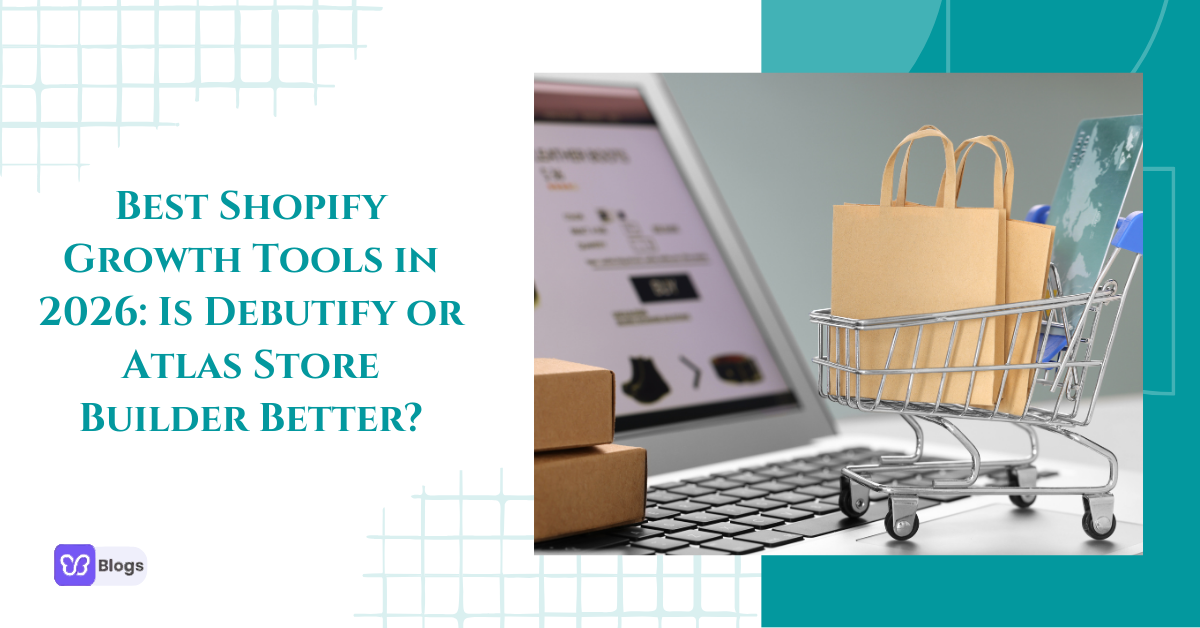Dropshipping seems easy and profitable at first. However, taxes and laws make it complex. Are you in dropshipping or thinking of starting a dropshipping business soon?
This detailed guide on dropshipping taxes has all the info you need. It covers tax obligations and VAT in the dropshipping industry.
Dropshipping Business Model Explained
The dropshipping business model has gained immense popularity and fame in recent years.
With the best eCommerce platforms, such as Shopify, BigCommerce, and Weebly, it has become easier than ever for any person to start his online store, provided that he has a business plan in mind.
But did you know this successful business model can turn into a nightmare if your business fails to comply with the legal challenges?
If you closely look at the dropshipping business model, you'll see two purchases at play for a single product - the buyer purchases a product from a retailer, then the retailer from the actual vendor. This is confusing, isn't it? When is the sales tax charged, and by whom?
What Taxes Do You Have To Pay If You Run A Dropshipping Store?
If you run a dropshipping store, you may have to pay two types of taxes: Income tax and sales tax.
What Is The Income Tax?
Income tax is the amount of tax you pay on your store's annual income. It's the same as paying a tax on your wage when you have a regular job.
The money you have to pay as a tax depends on your profit. So, if you don't have a profit, you're not required to pay this particular type of tax. In fact, you can also claim a tax credit if you had a loss in the previous year.
You pay income tax to your local government. For example, if you live in the US, you'll always pay income tax to the US government. Even if your customers are based in another country, you'll always pay income tax to your local government.
In certain cases, you may have to pay taxes to both federal and local governments (if you're based in the US). Fortunately, income tax is pretty simple to handle, and it isn't much of a burden like a sales tax.
What Is The Sales Tax?
Simply put, sales tax is a type of consumption tax. It is levied on the purchase of products and services.
Since end-users are the actual consumers of the products or services, they're liable to pay this tax.
As the dropshipping business model slightly varies from the actual retail business model, it oftentimes becomes challenging for your online store to determine who's the actual buyer or consumer of the product or service.
With drop shipping, the major point of concern is who collects the sales tax from the end user. Is it you, the retailer, or the vendor?
Interestingly, there is no answer to this question. Generally, you're not liable to pay sales tax on the purchases you've made for resale purposes. But for this, you'll have to apply for the official exemption certificate.
What Are Exemption Certificates?
Exemption certificates are also called resale certificates. Every state has its own rules regarding the issuance of this certificate to the retailers. Some states acknowledge certificates issued by the state, while others also accept multi-state resale certificates (a certificate that is accepted by multiple states- 38 states to be precise).
Also, if you're registered through the Streamlined Sales and Use Tax Agreement, your resale certificate will be acknowledged in every member state.
There are a few important things you must know about the exemption certificates before you start your dropshipping business as a retailer.
Exemption Certificates Are Only Legally Used When You Purchase Products With the intention To Resell
As a general rule, exemption certificates are only applicable when you purchase stuff from a supplier with the sole intention of reselling it to other people. Here, it is important to understand that each state has its own laws and regulations regarding the issuance and use of resale certificates.
Not All Suppliers Will Acknowledge Exemption Certificates
Your supplier reserves the right to accept or refuse your exemption certificate. That's because the supplier is the next in the queue for unpaid sales taxes if the resale certificate submitted by the retailer turns out to be fake.
Should You Charge Sales Tax From Your Customers?
USA
If you're registered through SSUTA, and you hold sales tax nexus in a state, then you have to collect and remit sales tax in states where you're registered.
But if you're a dropshipping store, you may need to check out your state laws regarding sales tax and exemption certificates.
On the other hand, if you do not have nexus in a state, that generally means you're exempt from collecting and submitting sales taxes.
But again, you might be on the hook for a tax if your vendor is based in the same state as the final consumer.
While some states consider an in-state vendor to qualify as a nexus for that sale, a few US states have different legal clauses about this particular situation.
Make sure you always check each state's policy to confirm you and your business are compliant with the legal clauses.
Canada
If you're based in Canada, you're more likely to collect and remit goods and services tax, also known as GST. Dropshipping businesses in Canada must adhere to the country's tax regulations, which include collecting and remitting the Goods and Services Tax (GST) or Harmonized Sales Tax (HST) on sales to Canadian customers. Notably, this tax is charged on each individual phase of production.
Similar to the US sales tax, GST is levied as a flat-rate percentage.
Canada currently follows "the place of supply law." This rule determines the tax rate you should follow to collect and pay to the concerned authority.
Here it's important to understand that determining the place of supply depends on your current location, the types of products or services you offer, and to whom.
If you're an online store selling tangible products, there is no confusion. Simply charge GST across the board if you're operating from Canada. Don't forget to check out the Canada tax guide to learn more about how this entire process works.
EU
Next on our list are the owners who are selling from the EU.
If you run a VAT-certified business in the EU, and your vendor is also based in the EU, then the reverse-charge mechanism will be implemented on B2B transactions.
On the flip side, if you run your business from outside the EU and your supplier is in the EU, then you don't have to pay VAT.
You must register your dropshipping business for EU VAT if you're based outside the EU. You can immediately start charging tax once you go beyond thresholds.
Charging tax from your customers at the time of purchase is extremely crucial. If you don't register your dropshipping store for VAT, then you run the risk of providing poor customer service.
If your products are being ordered from outside the EU, then the customer might have to pay extra charges and VAT. Such unexpected charges make up for negative customer experience.
We suggest you follow the distance selling laws in the EU if you're looking to provide the best customer service to your buyers across the board.
Did you know Shopify automatically collects a dropshipping tax on each order? You may have to check out guides on other platforms to see how this collection process works on their platforms.
Keep in mind that the guides you'll find on each platform highlight the process of sales tax collection on their individual platforms. They do not commit to providing legal advice.
According to a Shopify guide," The following reference guide is for informational purposes only and is not intended to replace professional tax advice. If you have further questions about whether tax legislation applies to you, then you should contact US state tax authorities or a tax professional. (Source)
Things To Consider Before You Start And Run Your Dropshipping Store
First and most importantly, you must ensure your business is registered. This step is critical, and therefore, we suggest you seek professional advice from an attorney or a tax specialist to learn dropshipping tax laws applicable in your area
The next thing you may want to do is apply for an EIN number. Employee Identification Number is almost the same as the social security number that the IRS uses to identify your business
Last but not least, contact your local city government to find out whether you need a local business license to run your dropshipping store online.
Listen to our podcast with Alan Chen on Tax Filing and Financial Advice for Ecommerce Growth.
Key Takeaways
Similar to your regular 9-5 job, you're required to pay tax on your annual income. You have to pay this amount to your local government, and it has to be paid annually.
Dropshipping store owners must also collect and remit the sales tax to their local governments. However, if you have an out-of-state supplier with no nexus in the particular state, you cannot pay sales tax or VAT on your purchases.





